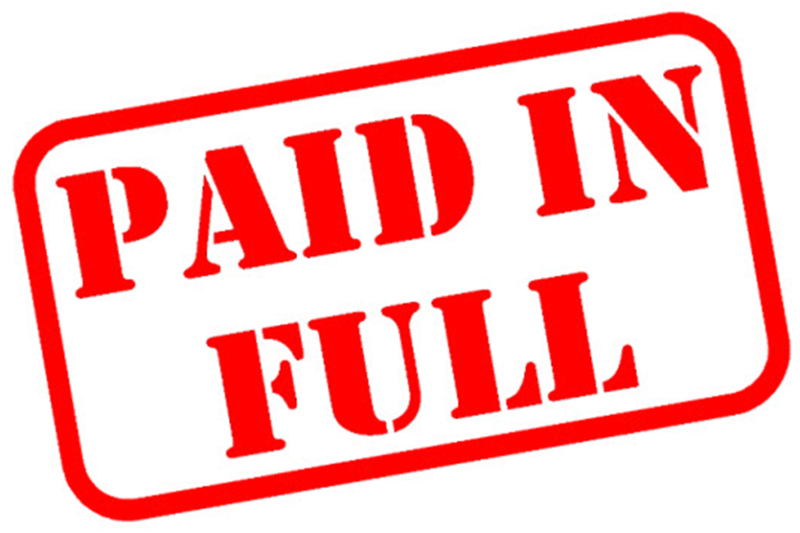7 Important Steps to Take After Paying Off Your Mortgage Payments

You’ve been diligent at paying down and paying off your mortgage. You sacrificed more than once to assure yourself of a better future. Yes, you’ve paid your dues and now you get to enjoy your rewards!
Congratulations on paying off your mortgage payments! You’re now officially a homeowner with a lot more financial freedom. While this is an amazing milestone, there are a few things you need to do to make sure everything is squared away. This can help you avoid financial issues, make sure your property is protected, and get peace of mind as you enjoy your home.
Follow these seven steps after paying off your mortgage:
1. Check your credit report.
You should be doing this regularly anyway, but it’s critical after paying off a big loan like a mortgage. Confirm that the mortgage has been recorded as paid off and that there are no errors on your report. Otherwise, you could have a hard time getting approved for new loans or lines of credit if your score is lowered by an incorrect report.
You can request a free credit report from one or all of the three major credit reporting agencies in the US once per year at AnnualCreditReport.com.
2. Review your home insurance policy.
Your mortgage lender likely required you to have homeowners insurance while you were making payments. Now that the mortgage is paid off, you might be tempted to cancel your policy. But that could leave you unprotected if something happens to your home.
Take a close look at your policy and see if there are any changes you need to make now that you own your home outright. For example, you might need to adjust your coverage limits or get rid of certain riders that were required by your lender. Work with your insurance agent to make sure you have the right amount of coverage for your needs.
3. Update your will.
If you don’t have a will, now is the time to create one. And if you already have a will, you should update it to reflect your new status as a homeowner. Your will can designate what will happen to your property if you pass away, and it’s important to make sure it’s accurate.
4. Reorganize your budget.
You’re used to budgeting for a mortgage payment, but now that the mortgage is paid off, you’ll have some extra money each month. It’s essential to properly manage this money so you don’t end up in debt again.
One option is to put the money into savings. This can help you build up an emergency fund or save for a future goal, such as retirement. Another option is to use the money to pay down other debts, such as credit card debt. Or you might want to reinvest the money into your home, such as by making improvements or taking out a home equity loan.
5. Consider turning your home into a passive income generator.
If you have extra space in your home, such as a guest room or basement, you might want to consider renting it out. This can provide some additional income each month, which can be helpful if you’re trying to become debt-free or save for a future goal. You can even rent out the entire place if you have another place to live.
Just be sure to research your state and local laws before renting out part of your home. You might also want to work with a management company such as trusted property services in Boulder if you don’t want to handle the logistics yourself.
6. Invest in maintenance and repairs.
Now that you own your home outright, you’re solely responsible for any repairs or maintenance that needs to be done. This can be costly, so the best way to prepare is to start setting aside money each month for these expenses.
Some of the most common expenses associated with homeownership are:
- Replacing the roof
- Repaving the driveway
- Fixing the furnace
- Repairing leaks and other water damage
It’s a good idea to have at least 1-3% of your home’s value saved for these types of repairs. So if your home is worth $200,000, you should have at least $2,000 saved.
You might also want to consider getting a home warranty, which can help cover the cost of repairs for certain systems and appliances. This can give you peace of mind knowing that you won’t have to pay out of pocket if something breaks down.
7. Check your equity.
Equity is the portion of your home’s value that you actually own. So if your home is worth $200,000 and you owe $150,000 on your mortgage, you have $50,000 in equity.
You need to keep an eye on your equity because it can impact your ability to get a home equity loan or line of credit if you need one in the future. You can also use your equity to refinance your home or sell it and pocket the profits.
To monitor your equity, you can check the value of your home using an online home value estimator. Keep in mind that your home’s value can fluctuate over time, so it’s important to check it regularly.
Conclusion
Paying off your mortgage is a major accomplishment, but it’s one that also comes with a lot of responsibilities. These seven steps will help create a smoother transition into homeownership and ensure that you’re prepared for what’s to come.

